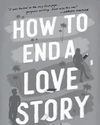Prøve GULL - Gratis
Everyday Wonder
Writer’s Digest
|September - October 2024
How to mine awe from the mundane

We typically associate wonder with science fiction, fantasy, or magical realism. Yet moments of wonder-an experience of amazement and awe that stills the mind and leaves us speechless-are all around us. Writers in any genre can captivate readers by using specific techniques to highlight the everyday wonder in daily life.
Wonder is a distinctly nonverbal experience, which differentiates it from curiosity (and the verb to wonder). Curiosity engages the thinking mind; the experience of wonder briefly stops thought.
Skilled writers can take everyday objects and processes and turn them into wondrous experiences for the reader.
As you read the examples below, notice how each author uses not only a given technique, but also their specificity of word choice and use of sensory engagement to evoke a sense of wonder. The more specific you are in drawing the reader in through sensory and somatic details, the more universally these moments will resonate.
ZOOMING IN AND BULLET TIME
In order to function in our world, we take many complex processes for granted-unfettered access to utilities, the functioning of our bodies, that hummingbirds and bees will continue to spread pollen. Each of these processes, though, is the inevitable result of dozens to hundreds of earlier moments.
Writers can evoke wonder by zooming in and slowing down time ("bullet time") or zooming in to show details invisible to the human eye.
A masterclass of this approach is Ruth Ozeki's A Tale for the Time Being, which entwines two narratives, one set in Japan and one on a small island off the coast of British Columbia. The latter gives rise to many moments of wonder like this one:
Denne historien er fra September - October 2024-utgaven av Writer’s Digest.
Abonner på Magzter GOLD for å få tilgang til tusenvis av kuraterte premiumhistorier og over 9000 magasiner og aviser.
Allerede abonnent? Logg på
FLERE HISTORIER FRA Writer’s Digest
Writer’s Digest
100 Best Markets for Writers
A list of print and online publications looking for freelancers to contribute their knowledge on everything from pet care to finance and beyond.
65 mins
Yearbook 2026

Writer’s Digest
Memoir Plus
Add a bonus to your personal narrative for a marketing boost.
8 mins
Yearbook 2026
Writer’s Digest
Surefire Ways to Sell Your Children's Book
In my 28 years editing children's books, I've learned that publishing exists at the intersection of art and commerce.
5 mins
Yearbook 2026
Writer’s Digest
The ABCs of Freelance Success
Many freelance writers, especially those at the beginning of their careers, tend to place almost all of their professional focus on one specific component: craft.
5 mins
Yearbook 2026

Writer’s Digest
How to Write in Different Genres
Emiko Jean and Yulin Kuang share tips and strategies for how they successfully write in different genres and mediums.
8 mins
Yearbook 2026
Writer’s Digest
Small But Mighty
Why small presses might be the perfect home for your book.
8 mins
Yearbook 2026

Writer’s Digest
The Story Behind the Story
What's backstory, and what's it doing here anyway?
6 mins
Yearbook 2026

Writer’s Digest
2025 Year in Review
Publishing expert Jane Friedman recaps the biggest news in the industry.
8 mins
Yearbook 2026

Writer’s Digest
What Is Your Story Question?
When a story isn't working—when you know it's not quite coming together, when beta readers and critique partners confirm your fears but can't put a finger on why, or you're not getting offers from agents or publishers—savvy authors start trying to diagnose the issue by examining its component parts, like characterization, plot, and stakes.
6 mins
Yearbook 2026
Writer’s Digest
Writer's Digest 27th Annual 101 Best Websites for Writers
For the 27th year, Writer's Digest is shining a light on 101 websites with a goal of helping writers in a variety of ways.
26 mins
Yearbook 2026
Listen
Translate
Change font size
